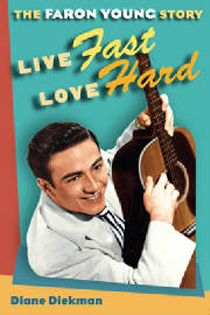I graduated high school, worked full time while taking one biology course, discovered I wasn't good at science and certainly wasn't good at handling a job and school at the same time, so I turned to tradition and married, starting our family two years later. But being a stay-at-home Mom wasn't a great fit either. Books and reading once again saved me. I say once again because as a kid, whenever things got tough at home I went next door to the library or I sequestered myself in my bedroom with a book. It wasn't high literary reading, mostly it was escapist stuff. But even at that, the more I read the more I knew. And some of what I was learning, I didn't realize, was about writing. I eventually returned to college and earned my degree -- we all know reading is a big part of any education. I did well. I particularly loved comparative studies. And all of the time I dreamed of writing my own work that someone would find worthy of buying.
I came to recognize writing that worked and definitely could spot writing that fell short. But knowing how to write it myself took more reading. This time I turned to Writer's Digest and The Writer and all manner of how-to books. Eventually I picked a publication out of the Writer's Market and sent them a manuscript. To my surprise -- they bought it.
The one thing I haven't been able to get past were my own self-doubts. But now and then something will come together and I'll know that I'm not just a hack. I'll know that I have good instincts. This week had a couple of those moments.
If you've been following this blog you know that I am writing for Suite 101, sent them an article about North Face Inc. and their lawsuits. And you'll also know that the editor didn't think it fit their criteria. But she left it on the Internet while I had a chance to think about a rewrite, which I made yesterday. In my efforts I looked at what was being written about that topic and to my surprise I discovered that I had beat the competition. I had scooped the Internet on the story! It felt good. It felt great! But the editor was still right. So I rewrote the story with a better focus and put it back out. The story would not have come about if I had not been reading.
I also maintain another blog: Subversive Stitchers: Women Armed with Needles. I adore needlework -- all kinds. Just give me fabric and thread or yarn and needles or a hook and ... I'm happy. Writing about it and inviting others to write about their own work has given me great pleasure. I saw a message on another blog that they too appreciated what I was doing. It doesn't take a six figure income to make my heart leap with joy -- someone who appreciates what I'm trying to do -- that's my kind of wealth. My Subversive Stitchers site works because I acquainted myself with all kinds of needlework, am curious about everything, and read, read, read about them all. Recently I wrote about Sashiko for Suite 101. A few years ago I had never heard of it (and no, it is not a number puzzle!).
So, I say, the greatest gift a writer can give himself or herself is time to read.
- Pick a topic, any topic and research it. Surf, surf, surf. The tide is always right to surf the Internet.
- Read nonfiction. Find out new facts. Fiction is also based on facts -- the more you know, the richer your writing.
- Read the classics of fiction.
- Read opening lines of books, think about why they work, why they don't. Think about what you would write as the next line.
- Read magazines and publications you dream of writing for and think about what they need and give it to them.
- Read for fun. My latest edition of Diana Gabaldon's series arrived and I'm so enjoying the exploits of Jamie and Claire. I fear that this may be a bit darker than the rest. Villains are popping out of the woodwork at every turn of page. I fear for Jamie and Claire's lives! I can't stop reading. Now, if I could just put that into my fiction.
- Read everything even billboards and cereal boxes.
I review books and sometimes the writing is weak, sparse, lacks the sparkle that draws the reader right into the character's lives -- but sometimes that doesn't matter and I just keep reading. I just reviewed such a book. The writing was mediocre, but the storyline was alive with new information, possibilities, an exotic location, people stepping outside of their normal lives and living an experiment. The psychology of the situation was compelling. So being a master of the phrase isn't always the most important thing about writing.
Often I think writers, especially fiction writers, should take a storytelling class or work on their storytelling skills. And so I come to the secret weapon of great writers -- children's books. Read those beautifully illustrated picture books and let your imagination go wild.






















No comments:
Post a Comment